NIGHTBREED (DIRECTOR'S CUT): A Case Of Imagination Overwhelming Cinema
Hellraiser was wunderkind author Clive Barker's debut film - and his first time at bat resulted in one of the horror classics of the '80s. Expectations ran high for his follow-up Nightbreed but its promise was cut off at the knees when production company Morgan Creek took the film away from his in the editing room. The muddled result was not only a disappointment to Barker but a non-starter for horror fans and general audiences alike. He continued to be successful in the print world but he's only directed one other film 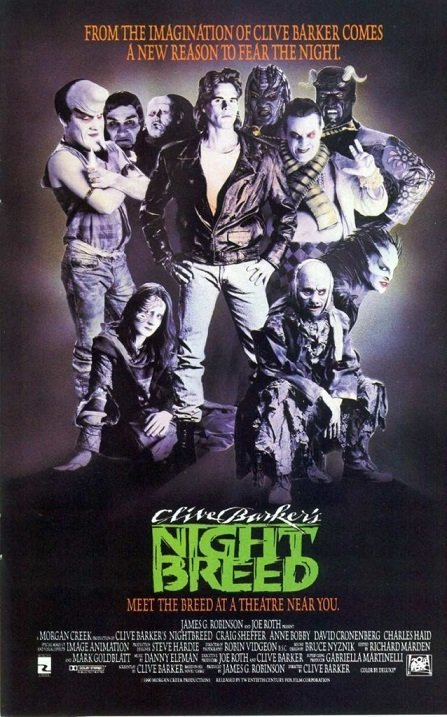 since Nightbreed.However, Nightbreed has gotten to have another chapter to its story that few expected: in recent years, colleagues of Barker's reassembled a lengthier version of the film using a script and old workprints as a guide. The success of this "Cabal Cut," named after the short novel it was adapted from, inspired Barker to return to his work and do a proper director's cut that reflects his original vision for the film. The results have been a hit with many horror fans - but a close look reveals that what works in prose form can be hard to grapple with on the big screen.The director's cut of Nightbreed hits the ground running, plunging the viewer headlong into a dense (and densely populated) premise: Aaron (Craig Sheffer) is a young man who has a beautiful singer girlfriend in Lori (Anne Bobby) but is troubled by nightmares in which he sees a race of humanoid
since Nightbreed.However, Nightbreed has gotten to have another chapter to its story that few expected: in recent years, colleagues of Barker's reassembled a lengthier version of the film using a script and old workprints as a guide. The success of this "Cabal Cut," named after the short novel it was adapted from, inspired Barker to return to his work and do a proper director's cut that reflects his original vision for the film. The results have been a hit with many horror fans - but a close look reveals that what works in prose form can be hard to grapple with on the big screen.The director's cut of Nightbreed hits the ground running, plunging the viewer headlong into a dense (and densely populated) premise: Aaron (Craig Sheffer) is a young man who has a beautiful singer girlfriend in Lori (Anne Bobby) but is troubled by nightmares in which he sees a race of humanoid 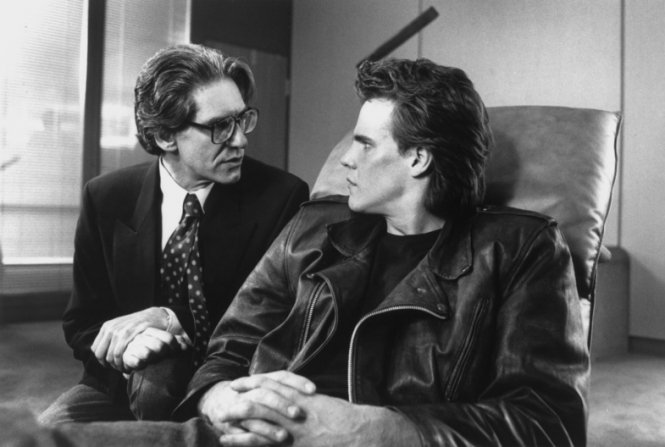 monsters. His psychiatrist Dr. Decker (erstwhile director David Cronenberg) is a closeted serial killer who uses Aaron's nightmares to cover the tracks of his own murder spree - and he sics the police on Aaron when the bodies start piling up, using details from his dreams to frame Aaron for the crimes.Aaron runs for the place in his dreams, using details provided by a mental patient Narcisse (Hugh Ross) that he meets while hospitalized. He discovers the world of monsters from his dreams living in secret beneath a long-abandoned cemetery. They induct him into his world but he struggles with his love for Lori. Further complicating things is the activities of Dr. Decker, who discovers the secret world and conspires with local
monsters. His psychiatrist Dr. Decker (erstwhile director David Cronenberg) is a closeted serial killer who uses Aaron's nightmares to cover the tracks of his own murder spree - and he sics the police on Aaron when the bodies start piling up, using details from his dreams to frame Aaron for the crimes.Aaron runs for the place in his dreams, using details provided by a mental patient Narcisse (Hugh Ross) that he meets while hospitalized. He discovers the world of monsters from his dreams living in secret beneath a long-abandoned cemetery. They induct him into his world but he struggles with his love for Lori. Further complicating things is the activities of Dr. Decker, who discovers the secret world and conspires with local 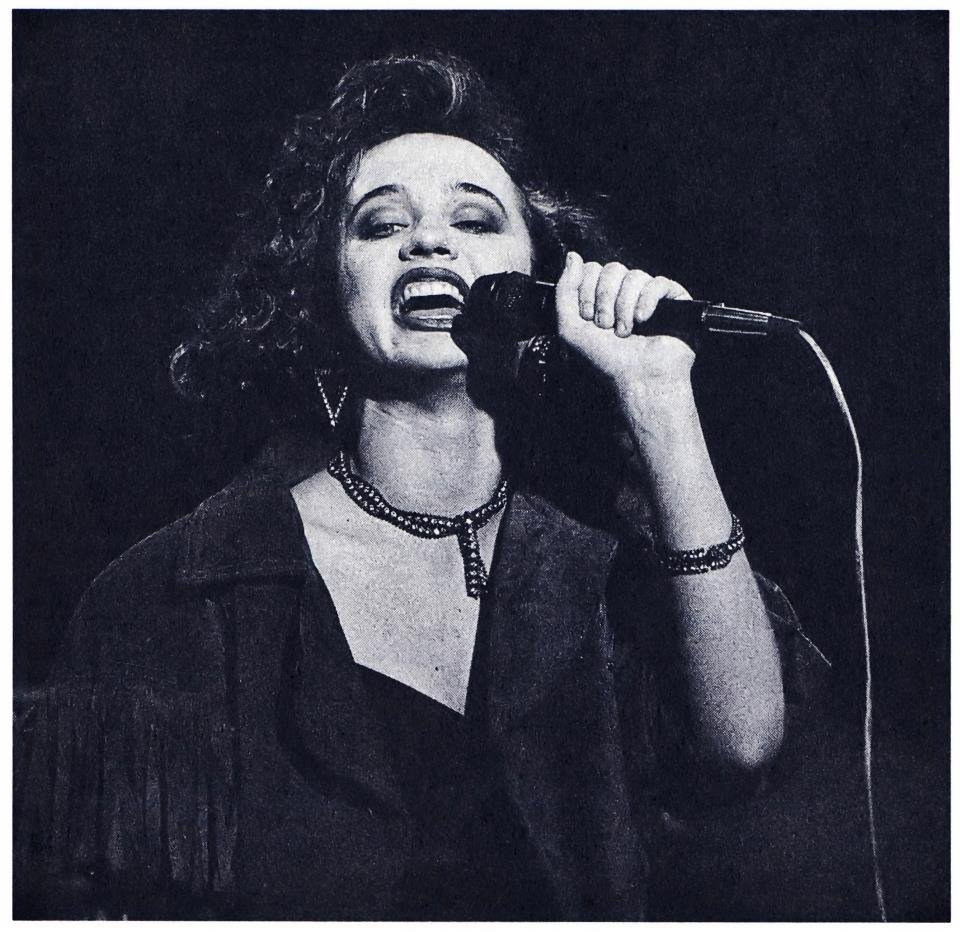 police to lead a raid on it.If the above synopsis sound labyrinthine in its complexity, that's actually a simplified version: the synopsis omits a whole ensemble of side characters and larger elements of the plot that suddenly pop up in the second half of the film. There's so much plot in the director's cut of Nightbreed that it holds the other elements of the storytelling hostage: characterizations are simplistic because they have no room to breathe, introductions of characters are rushed in awkward ways and the finale is chaotically rushed through as it attempts to tie up loose ends and introduce new story elements to set up a sequel. As a result, Nightbreed is simultaneously too much and not enough at a story level.Barker's direction of his overloaded storyline has style to burn: Robin Vidgeon's sleek cinematography gives the proceedings a Cronenbergian sense of chilly style while Danny Elfman supplies a suitably grandiose and thunderous orchestral score. Unfortunately, Barker seems overwhelmed by the complexity of the task. He has trouble balancing the humor and horror throughout the film, particularly when Dr. Decker starts quippin
police to lead a raid on it.If the above synopsis sound labyrinthine in its complexity, that's actually a simplified version: the synopsis omits a whole ensemble of side characters and larger elements of the plot that suddenly pop up in the second half of the film. There's so much plot in the director's cut of Nightbreed that it holds the other elements of the storytelling hostage: characterizations are simplistic because they have no room to breathe, introductions of characters are rushed in awkward ways and the finale is chaotically rushed through as it attempts to tie up loose ends and introduce new story elements to set up a sequel. As a result, Nightbreed is simultaneously too much and not enough at a story level.Barker's direction of his overloaded storyline has style to burn: Robin Vidgeon's sleek cinematography gives the proceedings a Cronenbergian sense of chilly style while Danny Elfman supplies a suitably grandiose and thunderous orchestral score. Unfortunately, Barker seems overwhelmed by the complexity of the task. He has trouble balancing the humor and horror throughout the film, particularly when Dr. Decker starts quippin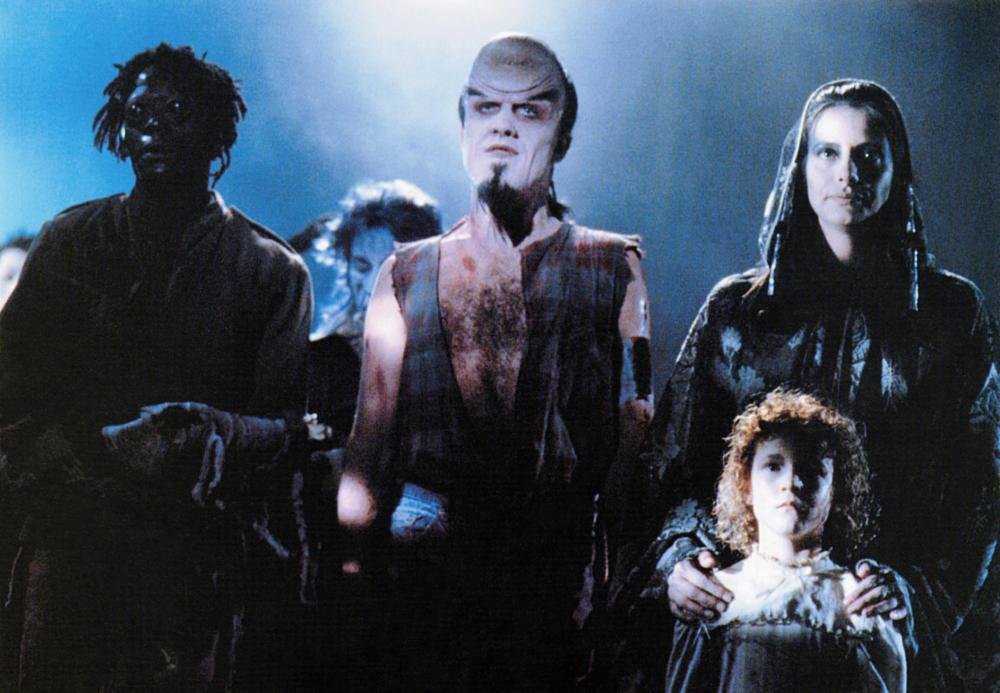 g like a deadpan Freddy Krueger.The humor/horror balance slips completely out of control during the final third of film: it suddenly goes for a kind of loopy, Gilliam-esque satire when dealing with jingoism and law enforcement, complete with the most cartoonish set of cops this side of Super Troopers. To make things worse, the finale is chaotic and unsatisfying. Instead of a carefully choreographed sequence full of peaks and valleys to its excitement, the battle royale finale looks like a bunch of b-roll footage awkwardly strung together.The actors put up a good fight dealing with material but they have a hard time registering within the density of the storyline: Sheffer and Bobby are likeable but bland, mainly because we get so little time to know them outside the needs of the plot, and Cronenberg is too deadpan to register as a terr
g like a deadpan Freddy Krueger.The humor/horror balance slips completely out of control during the final third of film: it suddenly goes for a kind of loopy, Gilliam-esque satire when dealing with jingoism and law enforcement, complete with the most cartoonish set of cops this side of Super Troopers. To make things worse, the finale is chaotic and unsatisfying. Instead of a carefully choreographed sequence full of peaks and valleys to its excitement, the battle royale finale looks like a bunch of b-roll footage awkwardly strung together.The actors put up a good fight dealing with material but they have a hard time registering within the density of the storyline: Sheffer and Bobby are likeable but bland, mainly because we get so little time to know them outside the needs of the plot, and Cronenberg is too deadpan to register as a terr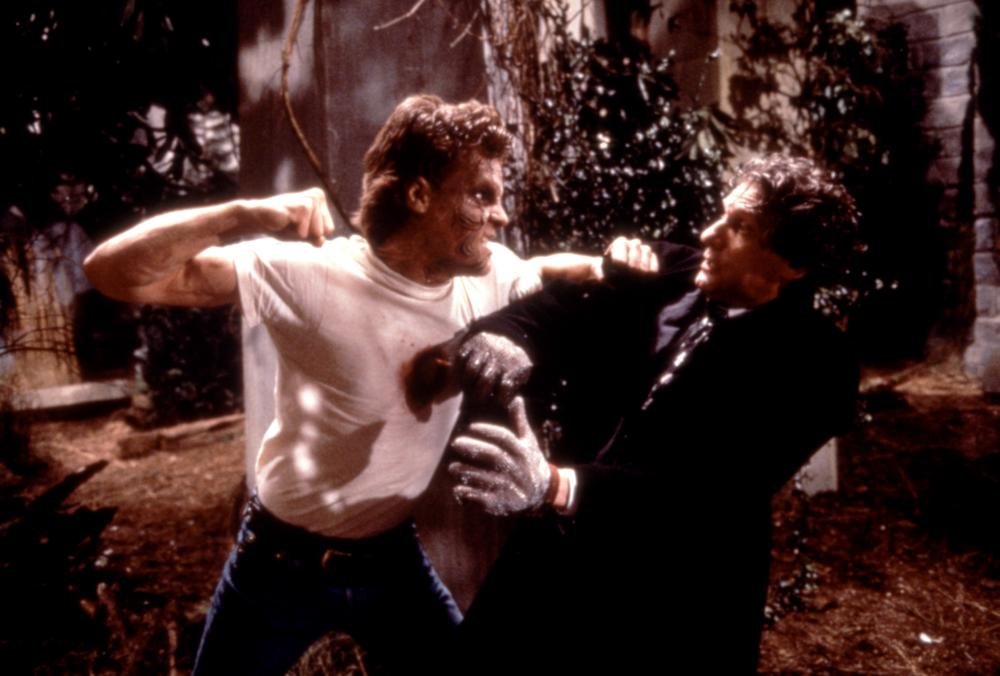 ifying killer. Doug Bradley is unrecognizable in a too-brief role as a leader of the monsters while Charles Haid chews the scenery with abandon as a Patton-esque cop (the only thing he doesn't do is deliver a speech in front of an American flag). There's no balance between the wilder and subtler performances: for instance, Ross often seems to be acting in an entirely different film when in scenes with Sheffer and Bobby.In short, the director's cut of Nightbreed might be more coherent and fully realized than the butchered studio cut but it isn't much better. The film simply goes in too many directions to realize the promise of its "monsters as part of the human race" premise. It's nice that Barker got to render his vision for his fans but in retrospect it seems that what was going on in his imagination was simply too grandiose to fit into the confines of a two-hour motion picture.
ifying killer. Doug Bradley is unrecognizable in a too-brief role as a leader of the monsters while Charles Haid chews the scenery with abandon as a Patton-esque cop (the only thing he doesn't do is deliver a speech in front of an American flag). There's no balance between the wilder and subtler performances: for instance, Ross often seems to be acting in an entirely different film when in scenes with Sheffer and Bobby.In short, the director's cut of Nightbreed might be more coherent and fully realized than the butchered studio cut but it isn't much better. The film simply goes in too many directions to realize the promise of its "monsters as part of the human race" premise. It's nice that Barker got to render his vision for his fans but in retrospect it seems that what was going on in his imagination was simply too grandiose to fit into the confines of a two-hour motion picture.


